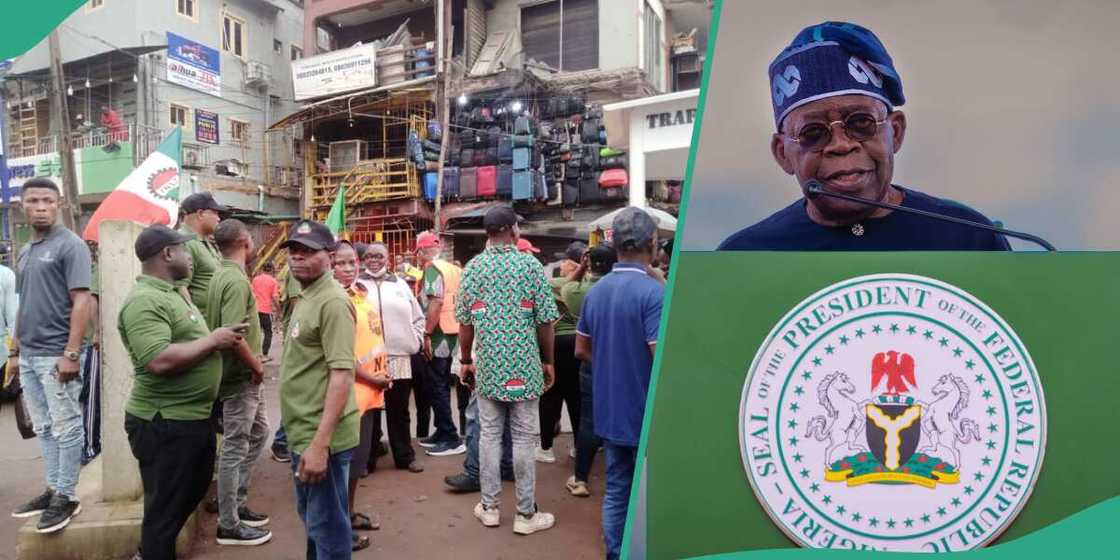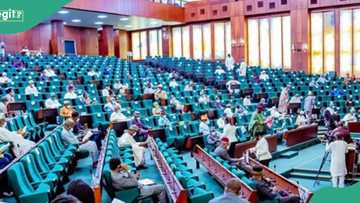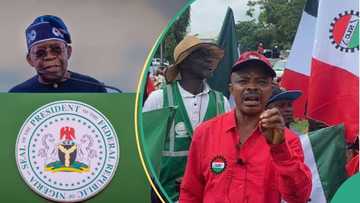Minimum Wage: 5 Things You Should Know After Organised Labour's Meeting with FG
Legit.ng journalist Bada Yusuf is an accomplished politics and current affairs editor, boasting over seven years of experience in journalism and writing.
PAY ATTENTION: Legit.ng Entertainment Awards 2024 Voting Is Alive. Choose the best entertainer in 15 categories for FREE.
The minimum wage controversies have intensified following the strike by organised labour on Monday, June 3. On Monday evening, the federal government met with union leadership at the negotiation table, during which four agreements were reached.
Some of the agreements included the daily meeting of the tripartite committee and the promise that no union member would be penalised for industrial action. President Bola Tinubu was also said to be committed to paying more than the N60,000 proposed by the federal government earlier.

Source: Twitter
However, since the meeting on Monday, some major events have unfolded, which Legit.ng captures below.
Tinubu meets FG team, orders finance minister
The first major event after the federal government's meeting with organised labour was the meeting between Tinubu and the federal government negotiation team headed by George Akume, the secretary to the government of the federation.
At the end of the meeting on Tuesday, June 4, Tinubu directed the minister of finance and coordinating economy to present the cost implications of the new minimum wage within two days.
Senate increases judicial workers' salaries
Another significant event after the strike happened on Wednesday, June 5, when the Senate passed the bill to increase the salaries of judicial workers by 300%.
The bill also increased the salaries, allowances, and benefits of judicial officeholders in the country.
The event was significant to the strike and issues surrounding minimum wage, attracting reactions from the Nigeria Labour Congress (NLC).
In its reaction, the organised labour urged the national assembly to pass a new minimum wage bill as it hurriedly passed the bill to increase the salaries of the judiciary.
NLC, TUC accused of treasonable act
During the industrial action by the NLC and its counterpart in the Trade Union Congress (TUC), the national grid was shut down. Many Nigerians have condemned this move, describing it as unlawful.
The Senate and the House of Representatives also described the act as a treasonable offence because it was an economic sabotage.
Through SGF Akume, the federal government also said it was a treasonable offence under the law to sabotage the economy by shutting down the national grid, adding that such does not happen anywhere in the world.
Rumoured N105k proposal as new minimum wage
Another major development on the new minimum wage saga since Monday's strike by organised Labour was the report that the minister of finance, Wale Edun, proposed N105,000 as the new minimum wage to Tinubu.
Earlier on Thursday, June 6, Edun presented the projected cost implications of the new minimum wage template to the president following Tinubu's two-day ultimatum.

Read also
Reps advise Tinubu on way out of economic hardship, say: "fix living wage, not minimum wage"
Reports in some quarters alleged that N105,000 minimum wage was included in the cost implications presented to Tinubu and is currently being reviewed by the president.
But in a statement by Tinubu's special adviser on information and strategy, Bayo Onanuga, the federal government denied the claim, saying it was false.
Governors speak about sustainable minimum wage
On Thursday night, the Nigerian governors' forum dismissed the possibility of paying workers N100,000 as minimum wage, saying it was not feasible or sustainable.
Sources revealed that the governors are contemplating between N60,000 and N70,000. The former was the last proposal of the federal government, and the latter was currently being paid for by the Edo state government.
Minimum Wage: Labour speaks on N494,000 demand
Legit.ng earlier reported that Festus Osifo, the president of the TUC, said organised Labour was aware that everybody would not pay their N494,000 demand for the minimum wage.
Osifo posited that the government knew organised labour was not fixated on its demand for the new minimum wage.

Read also
Minimum Wage: Labour considers slashing N494k demand as Tinubu gives fresh order, details emerge
The TUC president then stated that their negotiations were based on certain principles, such as inflation and exchange rates.
Proofreading by James Ojo Adakole, journalist and copy editor at Legit.ng.
PAY ATTENTION: Unlock the best of Legit.ng on Pinterest! Subscribe now and get your daily inspiration!
Source: Legit.ng




